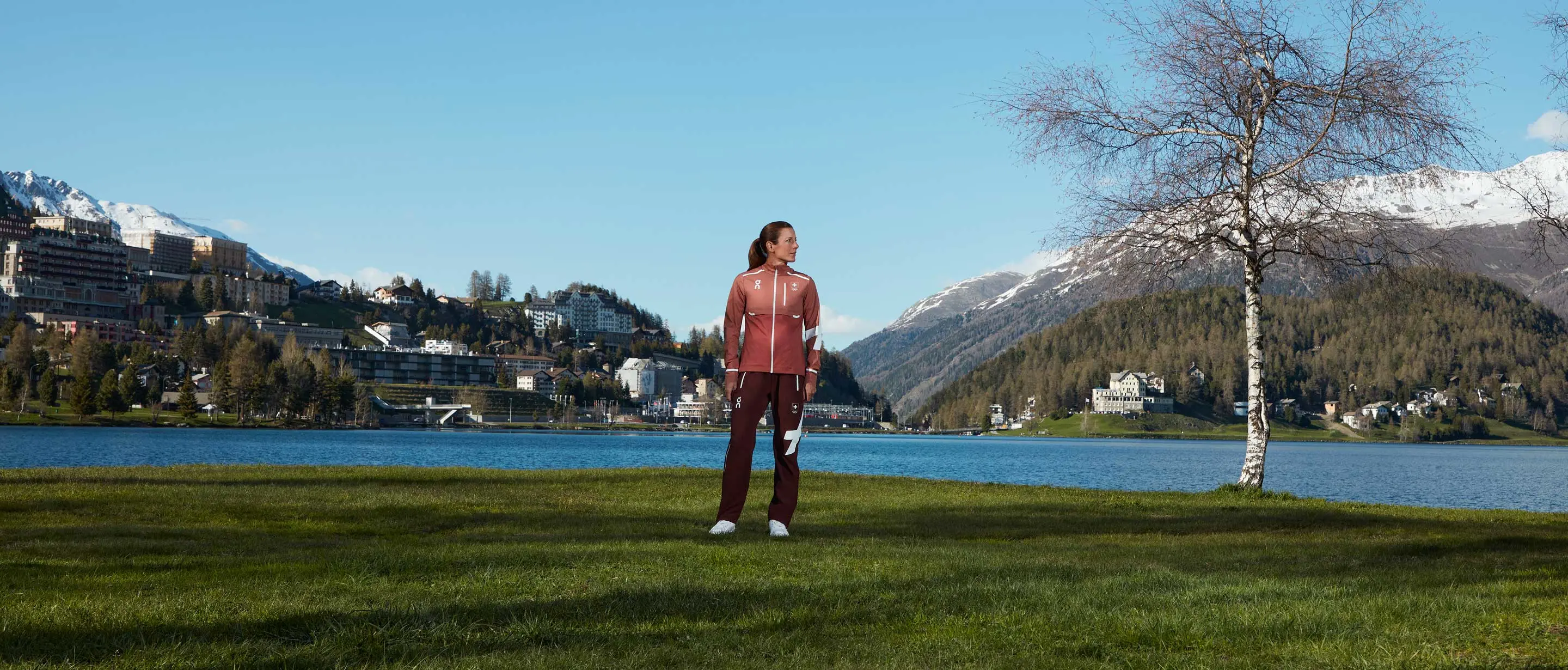

On the eve of her fifth Olympic Games, On checked in with the triathlon gold medalist
I started with sport very early on, and discovered triathlons. I always loved being active, and found the Olympic Games fascinating at a young age.
I will be taking part in my fifth Olympic Games in a few weeks. That sounds crazy. And each time has been a little different. Triathlons have only been part of the Olympic program since Sydney in 2000. I was a junior back then but already quite close to the level of the third triathlete, who travelled to Sydney to represent Switzerland at the Olympics. That’s when the Olympic dream became a realistic goal of competing at the games in Athens four years later. And I made it too: I took part in the Olympic triathlon as a rookie in 2004.
I see competing for Switzerland as a great honor. Of course, I can feel a lot of pressure and expectation when representing my country at the absolute top, the Olympic Games. But I see it as a major privilege, so I’m extremely motivated and very proud to compete for Switzerland.
It was difficult. All of a sudden, all of the pools were closed but we still had to prepare for Tokyo. The decision to delay the Olympics for a year made it easier. We definitely learned to be more flexible during the pandemic.
I see being able to live my passion, the sport, as a career as a huge privilege. It’s not always easy to reconcile everything all at once. But I will now be competing in my fifth Olympic Games as a mother of three children thanks to the amazing support of my husband, my family and everyone else around me. I’d never dared to dream it. I’ve got so much more out of the sport than I’ve sacrificed, and still been able to live out my dreams of studying and having a family too.
We train very intensively, three times a day. Swimming in the morning, then another session before lunch and the third training session in the afternoon. There’s also always a lot to organize in-between. Then we have meetings with sponsors and the media or other obligations and activities. But I always make sure I see my children before the first training session, then play with them after training and that I can eat dinner with them and put them to bed from 6.
I stood on the podium in London, and heard the national anthem. An indescribable moment full of pride, relief and gratitude. I want to perform my best on July 27, even if it doesn’t end with the national anthem.
Of course there are. But I am living my dream and get incredible joy out of what I do. A goal as ambitious as the Olympic Games is also extremely motivating and that’s a very good reason to push your limits every day.
They’ve all been different. From being a rookie in 2004 to 2008 in Beijing when I had more experience. In 2012, I really wanted gold. In 2016, I was in Rio with my first child and won silver.
In Athens, I experienced the Olympic spirit for the first time, and really enjoyed visiting other sporting events and meeting up with other athletes after my race.
It’s always different, you always have to get used to a new situation. But it’s definitely good to have experienced the pressure and expectations of the Olympic Games and know how to deal with it. These experiences help me for sure.
We are building our children’s program and the foundation, and I’ll be taking part in the “Sub8” project in spring of 2022. With this project, I’d like to complete the Ironman in under 8 hours, and motivate others to follow their own dreams and goals. It’s going to be exciting and challenging for sure.
It’s very touching when I see that I can inspire or motivate someone to follow their own dreams. Most of all, I love meeting children and always try to tell them how important exercise is. That’s why we founded a children’s triathlon program in 2014. We’re still currently building this, and we also meet children in schools through our foundation.
The plan was to travel to Tokyo with family and friends. Of course I’m sad not having them there. Their support means so much to me. But I can’t change the situation so I’m making the best out of it.
It’s all part of it. I’ve learned to deal with it and not lose focus, to enjoy the spotlight in nice situations, but I don’t miss all the attention when it’s gone.